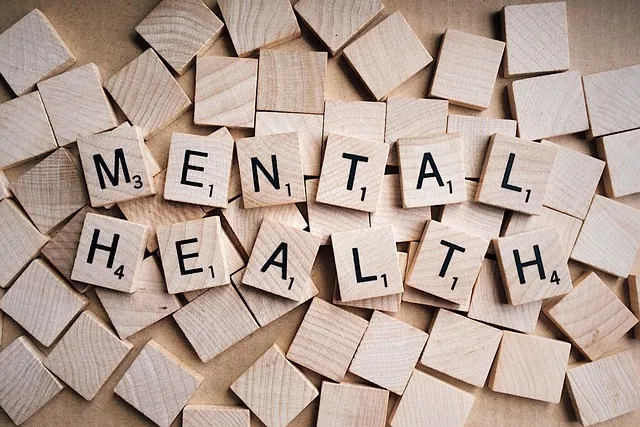Mental Health Crisis Hotlines in Boulder offer 24/7 support with trained professionals, providing immediate relief and long-term strategies for emotional well-being. These hotlines connect individuals to crisis counseling, self-care practices, and local resources like Kaiser's inpatient mental health services, ensuring comprehensive, confidential care tailored to unique needs. Unlike inpatient care, hotlines focus on accessibility, empowering users to take charge of their mental health through compassionate, culturally sensitive support.
“In a world where mental health crises are all too prevalent, Mental Health Crisis Hotline Support Services stand as lifelines. This article, ‘Understanding Mental Health Crisis Hotlines: A Vital Resource’, explores these 24/7 helplines, their operations, and the critical services they provide. From staffing and training to privacy measures, we delve into how these hotlines offer immediate assistance and facilitate long-term solutions. Learn about access points and the resources available, even in areas like Boulder, examining whether Kaiser’s inpatient mental health services are a viable option for crisis intervention.”
- Understanding Mental Health Crisis Hotlines: A Vital Resource
- Who Answers the Call: Staffing and Training
- What Services Are Offered: From Immediate Support to Long-Term Solutions
- Accessing the Line: Availability, Privacy, and Confidentiality Ensuring Help When Needed
Understanding Mental Health Crisis Hotlines: A Vital Resource

Mental Health Crisis Hotlines serve as a vital resource for individuals navigating turbulent times and offering immediate support. These 24/7 services are designed to provide comfort, guidance, and resources during intense moments, ensuring folks in Boulder or beyond don’t face their challenges alone. Whether someone is experiencing acute distress, contemplating self-harm, or simply seeking an emotional outlet, trained professionals offer a safe space for expression and exploration.
Unlike inpatient mental health services like those offered by Kaiser, hotlines focus on accessibility and immediate intervention. They connect individuals to networks of support, including crisis counseling, referral to local resources, and even guidance on self-care practices such as Inner Strength Development, Stress Management Workshops, and Mental Wellness Journaling Exercises. These simple yet powerful tools empower people to take charge of their mental health, fostering resilience and promoting long-term well-being.
Who Answers the Call: Staffing and Training

When individuals reach out to a mental health crisis hotline, they are often met by trained professionals who are equipped to handle a range of issues. These hotlines, such as those offered by organizations like Kaiser in Boulder, typically employ a diverse team including counselors, psychologists, and peer support specialists. The staff is carefully selected based on their expertise and experience in various mental health domains, ensuring that they can provide compassionate and culturally sensitive support.
The training for these professionals goes beyond basic counseling skills. It often includes specialized courses in trauma support services, compassion cultivation practices, and cultural sensitivity in mental healthcare practice. This comprehensive approach ensures that callers receive not just immediate relief but also long-term strategies to manage their mental health effectively.
What Services Are Offered: From Immediate Support to Long-Term Solutions

When individuals face a mental health crisis, accessing immediate support is crucial. Boulder’s mental health hotline services provide just that—a safe and confidential space to connect with trained professionals who offer guidance and resources. These hotlines cater to various needs, from providing emotional support during distressing times to offering strategies for self-care practices and self-awareness exercises aimed at fostering mental wellness.
Beyond immediate assistance, some hotlines also facilitate access to long-term solutions. They can help individuals navigate local resources, including inpatient mental health services offered by organizations like Kaiser in Boulder, ensuring comprehensive care tailored to their unique circumstances. This holistic approach acknowledges that recovery is a journey, and these services play a vital role in guiding folks towards sustainable mental health management.
Accessing the Line: Availability, Privacy, and Confidentiality Ensuring Help When Needed

Accessing the mental health crisis hotline is a crucial step towards ensuring help when needed. These services are designed to be readily available 24/7, offering immediate support to individuals experiencing emotional distress or a mental health crisis. Whether it’s a private conversation in a bustling city like Boulder or the comfort of your home, these hotlines provide a safe space to connect with trained professionals. At Kaiser, for instance, inpatient mental health services are accessible, ensuring those in need can receive specialized care without delay.
Privacy and confidentiality are paramount when utilizing these support services. The lines are secure, guaranteeing that discussions remain private. This trust allows individuals to openly share their struggles and fears, fostering a sense of vulnerability that is essential for effective emotional healing processes. By prioritizing these factors, mental health crisis hotlines empower users to take control of their mental wellness, facilitating self-esteem improvement and promoting overall mental health.
Mental health crisis hotline support services, like those available in Boulder through Kaiser or similar organizations, play a crucial role in ensuring help is readily accessible when needed. By offering immediate assistance and connecting individuals to long-term solutions, these hotlines provide a vital safety net for those facing mental health crises. With properly trained staff and robust privacy measures in place, such services offer a confidential space where folks can find solace and guidance. Whether it’s Kaiser’s inpatient mental health services or community-based support, recognizing the importance of these resources is key to fostering better mental well-being for all.






